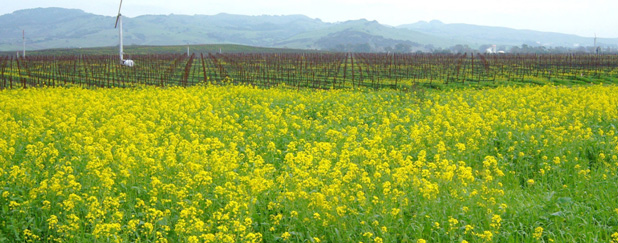Mustard is the world's third most important spice after salt and pepper, and in temperate regions it is the most important native spice. The term "mustard" is believed to be derived from the practice of mixing the sweet must of old wine with crushed mustard seed to form a paste, mustumardeus (hot must), hence mustard. The condiment is made from seeds of annual plants of the family Cruciferae, so named for the flower's four yellow petals, which form a cross. The mustard family includes the cole vegetables, radishes, turnips, cress, and horseradish, as well as many important weedy species, such as wild mustard or charlock (Sinapisarvensis L.).
Mustard oil
Mustard oil has had contradictory reputations in different parts of the world over the years. It is very popular oil on the Indian Subcontinent, specifically in the Eastern parts of India and in Bangladesh. There, it is used as an edible oil and is considered very healthy, whereas in the rest of the world, it is often considered toxic, irritable and not suitable for edible purposes. In some parts of Europe, there is even a ban on selling this oil and in some other countries; it is sold as massage oil reserved for external application only.
Mustard essential oil is totally different from Mustard Oil, not in the sense that it is extracted from anything else, but in terms of the process of extraction, chemical composition and medicinal properties. Both of these oils are extracted from the seeds of mustard, which bears the scientific name Brassica Nigra (Black Mustard) or Brassica Hirta (White Mustard).
While mustard oil is extracted by cold compression of mustard seeds, its essential oil is extracted by steam distillation of mustard seeds soaked in water, and that is where the major difference occurs. Mustard seeds (black or white) contain an enzyme called Myrosinase and a glucosinolate called Sinigrin. These two remain isolated in mustard seeds under normal conditions, but react when the seeds are subjected to pressure or heat. In the presence of water, these two components react to form Allyl Isothiocyanate (in case of black mustard) and normal Isothiocyanate (in case of white mustard), which is a toxic compound.







